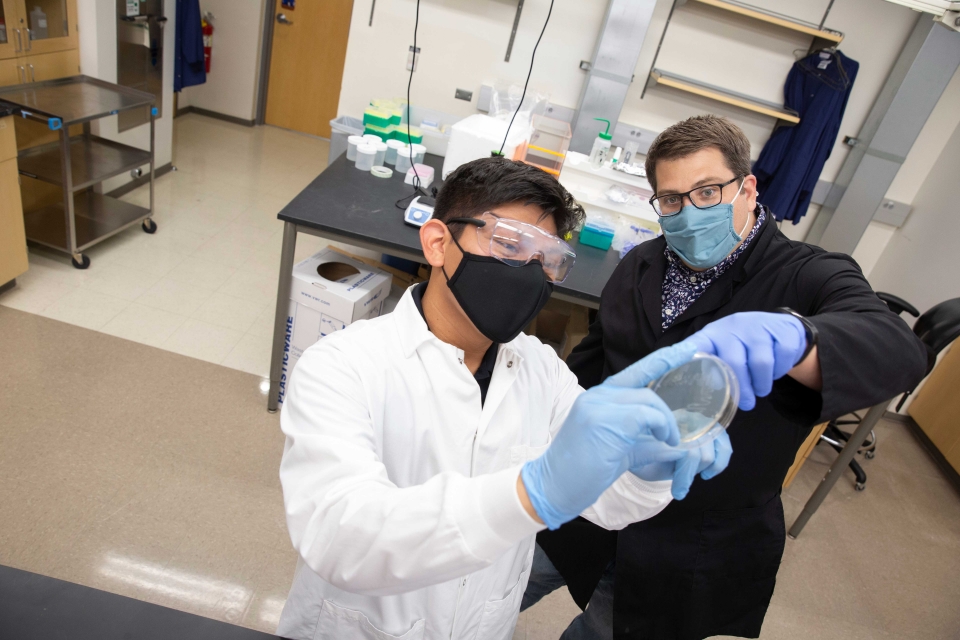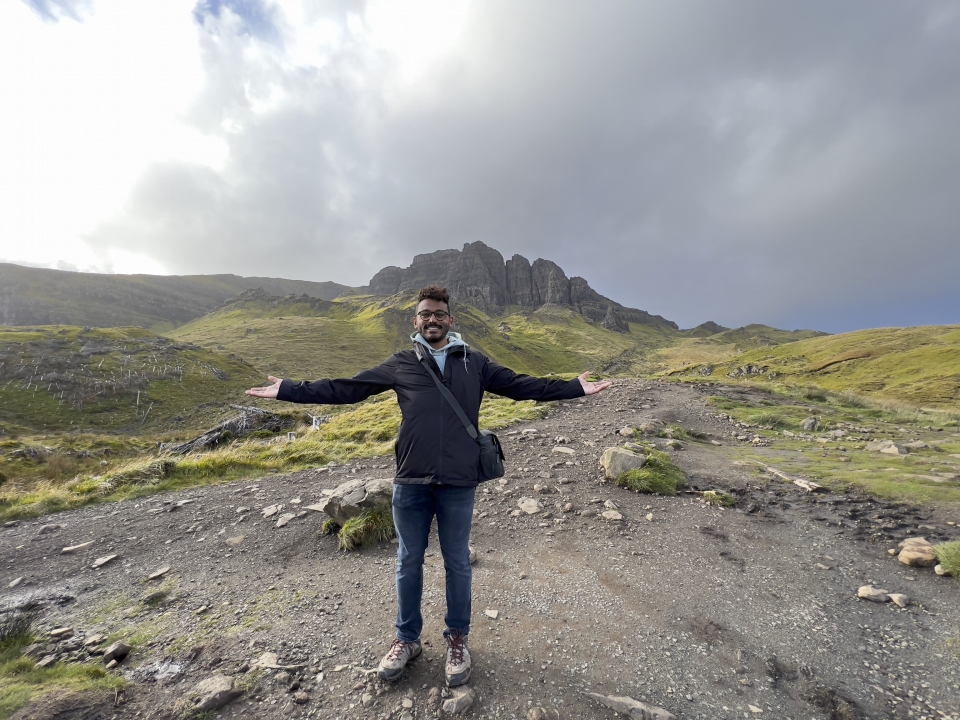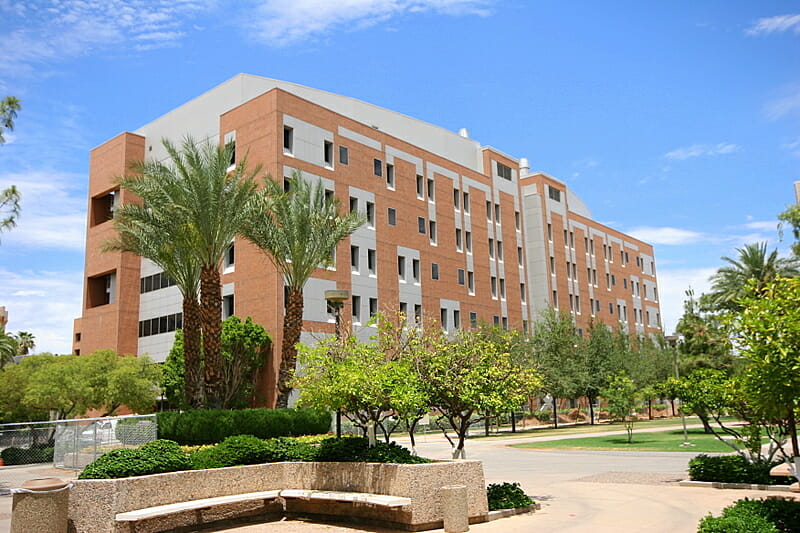The Ira A. Fulton Schools of Engineering has reached an impressive milestone — student enrollment hit a high of 30,000 students this fall.
That’s up 12% from last year and 27% from 2017, making it the largest engineering school in the nation.
Kyle Squires, dean of Arizona State University’s Fulton Schools of Engineering, sums up the college’s recent success in two words: “high quality.”
READ ALSO: ASU ranks 8th among worldwide universities granted utility patents in 2021
READ ALSO: 25 tech startups to watch in Metro Phoenix
“We have a lot of stability in terms of programmatic direction, leadership and faculty growth,” said Squires, who also serves as ASU’s vice provost for engineering, computing and technology. “We have become adept at delivering programs that matter.”
The commitment to providing a “high quality” education is evident in every aspect of the Fulton Schools — from what students experience inside classrooms, including world-class faculty and labs, to outside opportunities for research, internships and career events.
And this has not gone unnoticed.
“This is an engineering college that is widely recognized around the country,” Squires said. “Prospective students and their parents are very impressed when they come to campus.”

Rankings matter
Rankings certainly contribute to the school’s draw.
The Fulton Schools placed No. 33 overall in the 2022–23 U.S. News & World Report’s ranking of undergraduate programs, out of 212 universities included in the survey, and placed No. 19 among public universities.
In addition to that, ASU ranked:
• No. 1 for innovation (for the eighth year in a row) by U.S. News & World Report.
• No. 4 for the number of STEM graduates by Integrated Postsecondary Education Data System.
• No. 8 for patents issued to universities worldwide by the National Academy of Inventors.
The STEM ranking puts the university on par with some of the top schools in the country (ahead of MIT and Stanford University), and ASU’s innovation ranking distinguishes it from every other university in the U.S.
The Fulton Schools also offers high quality education for remote learners around the world. The following online graduate specialties are among the top in the nation:
• No. 2, electrical engineering.
• No. 2, engineering management.
• No. 4, industrial engineering.
• No. 9, engineering for veterans.
• No. 12, engineering.
These rankings reflect an overall commitment to what the college calls the Fulton Difference — a group of programs created to build a culture that helps students stay connected with faculty and each other.
The Fulton Difference started as an orientation program but has grown to be a collection of services and programs that support student organizations, undergraduate students in research projects and teaching and entrepreneurship.
“That’s what we have developed over many years,” Squires said. “It refers specifically to all of the outside activities we want students to become involved with. … There are a lot of pathways to being successful. All of these things add up.”
Academic offerings for every aspiring engineer
While rankings certainly attract students to the Fulton Schools, it is also its breadth of degree programs that have led to the dramatic increase in enrollment.
The Fulton Schools of Engineering offer almost every conceivable degree in engineering, which amounts to 25 undergraduate programs in seven schools and an additional 47 graduate programs.
“We attract students because we’re so broad. We’ve got most engineering disciplines and related disciplines covered — everything from students designing airplanes to students flying airplanes,” said Jim Collofello, vice dean and professor in the School of Computing and Augmented Intelligence, which is part of the Fulton Schools.
Beyond that are the opportunities afforded to those attending a college located in metropolitan Phoenix, where the tech industry is booming. The school has cultivated partnerships with companies such as Boeing, Honeywell and many others, including Lucid Motors.
“We are the only intensive college research institution in this area,” said Michael McBride, director of student recruitment for the Fulton Schools. “We are very attractive locally and nationally because of that. It is really all of these things that make the difference.”

Giving accreditation where it is due
In addition to record enrollment and notable rankings this semester, all of the engineering schools have distinguished themselves with a stamp of approval from the prestigious Accreditation Board for Engineering and Technology (ABET).
Two of the school’s newest programs — environmental engineering and construction management engineering— were accredited for the first time and are included in the total of 18 accredited for the next six years.
Having that many programs accredited at one time, for the next six years, is considered unusual.
“In my experience, it has never happened,” Squires said. “It’s a real breakthrough.”
But this is no small task.
Accreditation is a rigorous process that requires representatives from all 18 programs to meet with an external review team from ABET.
“They come in on a Sunday and leave on Tuesday,” explained Collofello, who leads the accreditation process at ASU’s Fulton Schools. “They interview students, industry professionals and faculty. And it is not just a one-time thing.”
ABET evaluates the college’s curriculum, content and, most importantly, its commitment to continuous improvement.
The nonprofit works with universities around the world to assure that they meet the quality standards for the profession that students will enter upon graduation.
Engineered for student success
Susanna Westersund, a civil engineering major, is one of many who has benefited from her time at the Fulton Schools. But attending a university in Arizona was not her original plan.
When she graduated from high school, Westersund was set on going out-of-state for college but soon discovered all that the Fulton Schools had to offer.
The fourth-year student said she has had more research and internship opportunities than her friends at other universities.
“Because we are such a large research institute, we have the same opportunities as kids at the Ivies. Maybe more,” Westersund said. “Everything I have gotten to do has been super awesome.”
Student takes online program on the road
For Darius Guerrero, pursuing an undergraduate and master’s degree at the Fulton Schools has not impeded his ability to work full time at the Washington Post and travel around the world — all at the same time.
Guerrero originally attended Santa Barbara City College but financial constraints forced him to drop out and get a job. When he decided to go back to school, he looked for a program that would allow him to remain in Southern California and work full time.
ASU turned out to be that place.
“I was drawn to ASU’s online courses, as I was based in Southern California,” said Guerrero, who was accepted into the graphic information technology program at the Fulton Schools in spring 2020. “There was the breadth of programs that I could attend, and it was all remote.”
Returning to school after many years was challenging for Guerrero.
“It had been a while,” said Guerrero, “but I carried on, working a 10-hour day, taking a nap at 7 p.m., chugging iced coffee to stay awake, and completing my schoolwork from 8 p.m. until midnight. I was thankful that ASU was so accommodating with classes and that I never had to step foot on campus to complete my degree.”

While at ASU, Guerrero saw a position for a remote UX designer at the Washington Post. He applied and got the job. His classes at the Fulton Schools contributed to his success.
“It was interesting. I was taking courses around user experience and we had a module in user testing and personas,” he said. “Then, the following week, I used the knowledge learned in the course to help me at work.”
Since starting at the Washington Post, Guerrero graduated with a bachelor’s degree in graphic information technology and will complete his master’s degree this December, all while traveling through Europe.
Right now, he is writing his portfolio for graduation and planning a weeklong trip to Iceland.
All of this because he chose to attend the Ira A. Fulton Schools of Engineering.
“I am very thankful for the online program at ASU,” said Guerrero. “It has completely transformed my life.”




